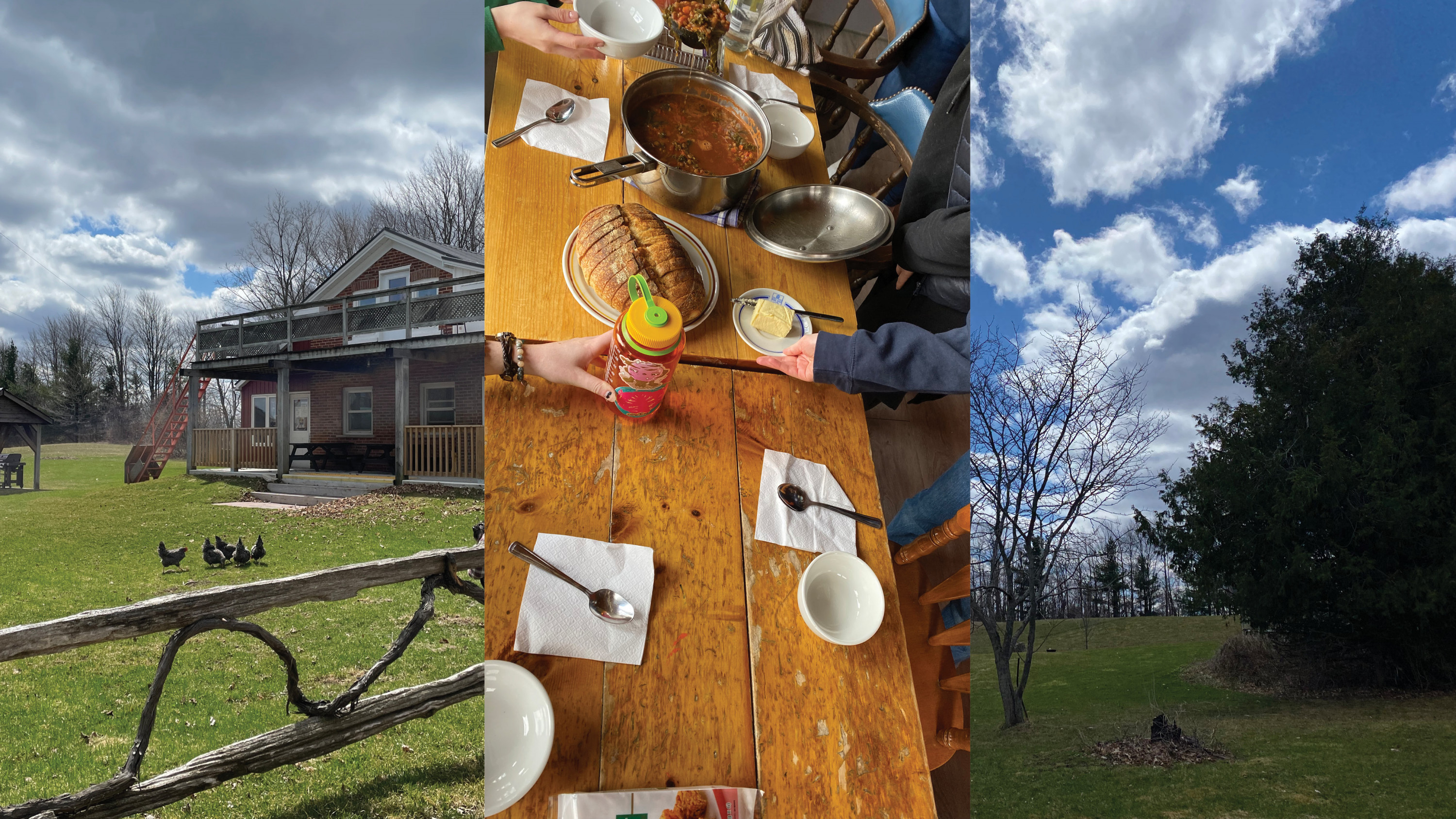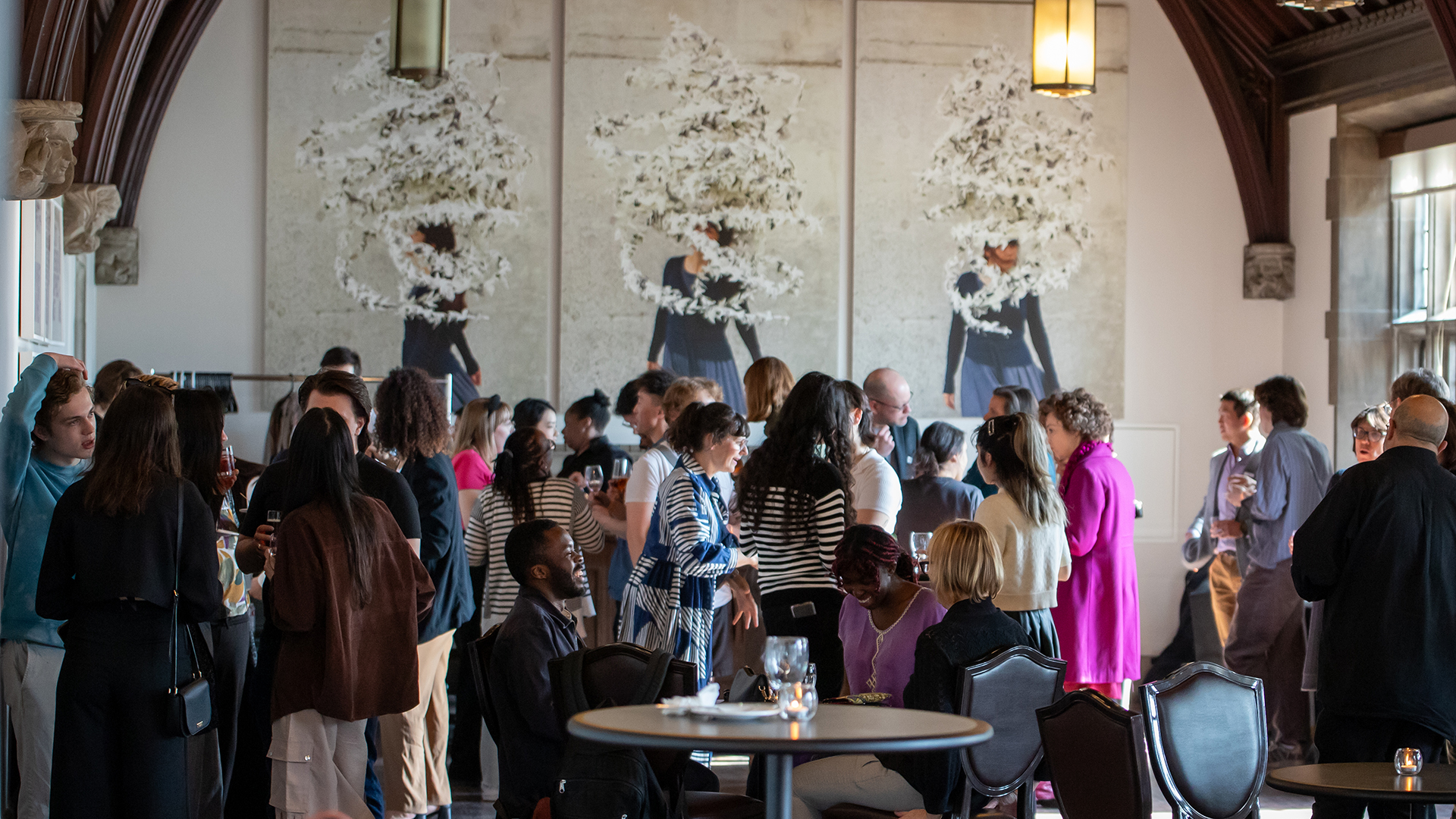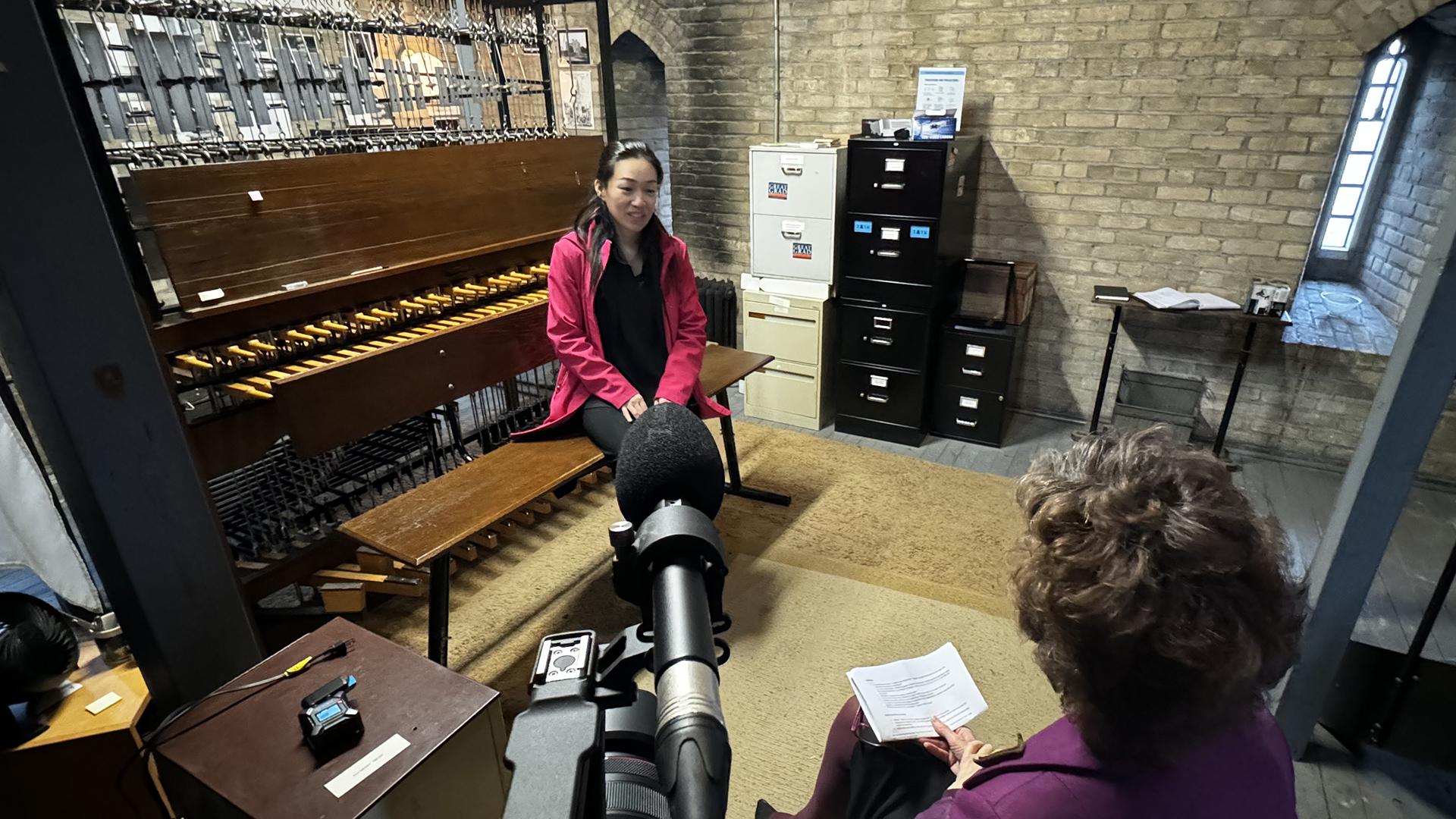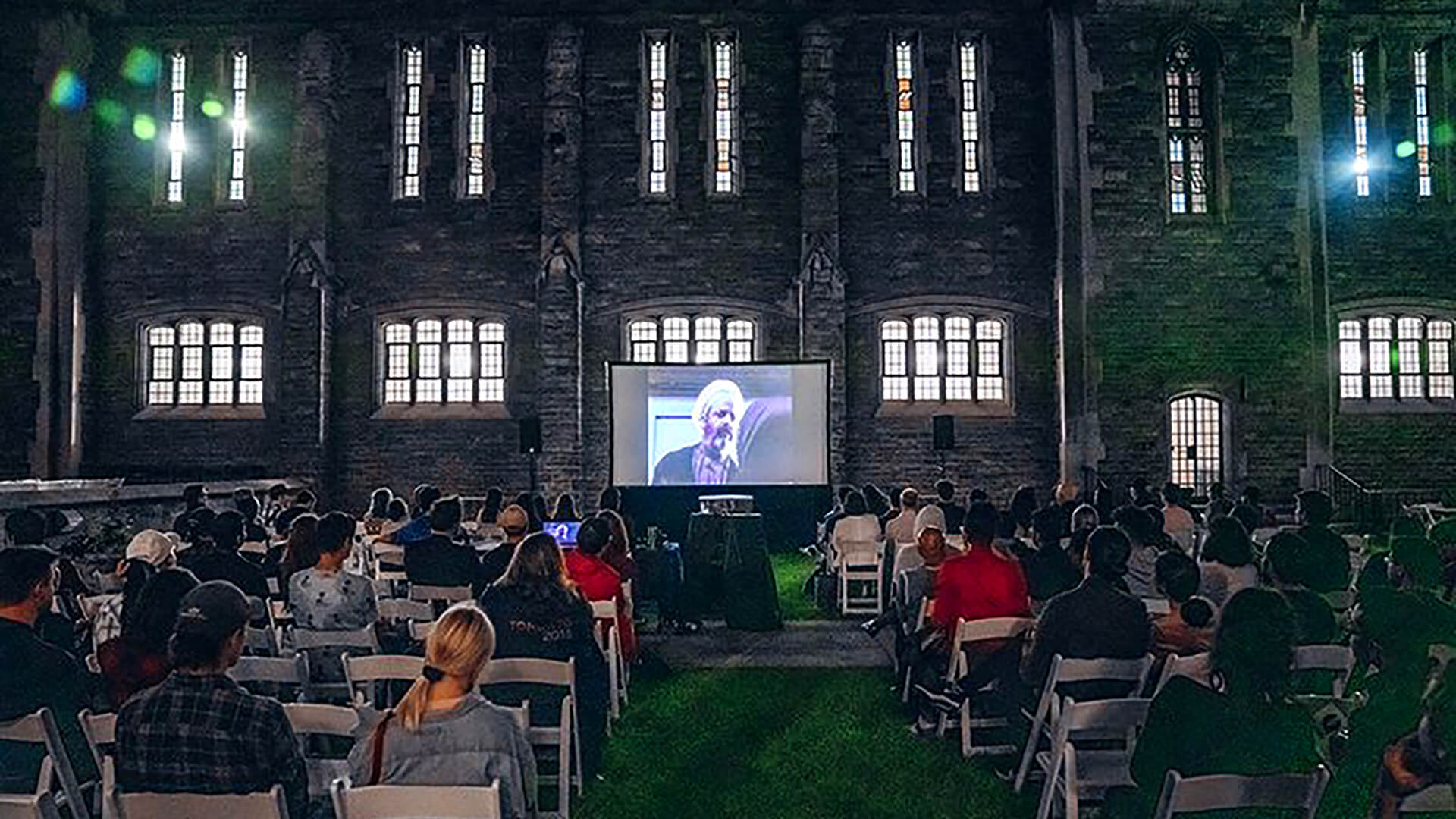
There are many amazing things about the Hart House Farm, including the Hart House Student Farm Committee and a number of transformational projects that are currently underway.
Cradled in the Caledon Hills, the Hart House Farm is an ideal retreat from Toronto and a prime experiential education centre for University of Toronto (U of T) students. The Farm includes 150 acres of woods, fields and ponds, all located within the Niagara Escarpment - globally recognized as a UNESCO World Biosphere Reserve for its natural heritage. For more than 70 years, students have enjoyed opportunities to get away from the pressures of the city, engage in seasonal outdoor activities like hiking and swimming, and experience the intrinsic joy of connecting with nature either alone or in community.
Today, the Hart House Farm is focused on becoming an even more welcoming, accessible and inclusive space for everyone. Whether through the student-focused programs organized by the Hart House Student Farm Committee, staff-led efforts to facilitate greater awareness of the Farm among students of all three U of T campuses, or exciting projects made possible by innovative partnerships with both academic and non-academic units across the University, the Hart House Farm is experiencing an exciting period of transformation.
Hart House Farm Committee
Calista Barber and Elizabeth (Lizzy) Wong are active participants in the Hart House Student Farm Committee, which organizes community building, outdoor recreation, seasonal activities, and food and agriculture projects. The Committee represents the principal way through which students and student leaders connect with the Farm as a centre for co-curricular exploration and experience.

Calista and Lizzy visited the premises on April 16.
The students were both drawn to the Farm right away. “I heard about the Farm Committee from some upper-year students and was immediately intrigued. I love spending time outside and thought it would be a great opportunity to connect with like-minded individuals and visit a really cool space!” says Calista.
Lizzy, conversely, discovered the Committee online as she started university during COVID and her extracurricular activities were limited.

“What drew me to it most was that it covers such a variety of interests and activities from environmental sustainability to urban agriculture to food insecurity, both in Toronto and elsewhere,” she says, adding, “A lot of the things we do are very hands on. Especially during pandemic times, people appreciate it – engaging in activities as opposed to just seminars and lectures. One of the strengths of the Committee is the ability to provide students with activities and places to interact.”
Calista elaborates on this idea, “I value the community we’ve fostered and created as much as I value the physical space of the Farm itself. Throughout the pandemic, this Committee has been a really great opportunity to collaborate and connect with students during a time of isolation.”
Land-Based Learning
Over the last several years, Hart House has been honoured to work with the Waakebiness-Bryce Institute for Indigenous Health (WBIIH) at the Dalla Lana School of Public Health to transform the Hart House Farm into a centre for land-based learning. Dr. Angela Mashford-Pringle, Associate Director of WBIIH and the first Indigenous health lead at the Dalla Lana School of Public Health, has been the driving force and principal innovator of this work which has involved a collaboration with the Hart House Farm and delivery of classes there since 2018.

The work has continued to expand and evolve since that time, and in the month of May 2022 alone, there were two courses offered in residence at Hart House Farm: CHL5520 Indigenous Health and CHL5522 Indigenous Food Systems, Environment and Health.
“I hope Indigenous and non-Indigenous faculty and students will want to visit to learn from the land – about Indigenous issues and health – by seeing what the territories were used for traditionally,” Dr. Mashford-Pringle told U of T News.
Enhancing Spaces Together
Angela’s commitment to creating transformative land-based learning opportunities for graduate students in Indigenous Health at WBIIH is fully aligned with Hart House’s own commitment to creating more accessible and welcoming spaces throughout the organization. Together, WBIIH and Hart House have been working to enhance the physical spaces at the Farm to better accommodate the needs of both Indigenous and non-Indigenous students and communities, including the joint submission of two separate – and successful - proposals to the University’s Indigenous Spaces University Fund.

The first proposal, entitled “Enhanced Access to Land Based Learning and Community Building at Hart House Farm,” focused on the reduction of physical barriers to using the Farm as a land-based space for Indigenous learning and to enhance access to the Farm space for all purposes – curricular, co-curricular, social and recreational.
The resulting project, which began in 2019, involved the construction of an Access for Ontarians with Disabilities Act (AODA)-compliant washroom on the main floor of Ignatieff House, the main public building on the site, as well as AODA-compliant ramps up to the building from the parking lot. The lounge spaces in Ignatieff House were also renewed and upgraded with comfortable living room furniture, and floorcoverings were updated for greater accessibility. The kitchen space was renewed through the replacement of aging cupboards, sinks, countertops and more.

The second proposal – which was a three-way submission made in 2021 by WBIIH, Hart House, and U of T’s Indigenous Student Services office - was even more ambitious. Funds from that successful proposal are currently being used to construct eleven, two-person, prefabricated three-season bunkies for overnight accommodation; renew the septic system and the well; and purchase outdoor furniture and recreational equipment, such as snowshoes. The project also received sufficient funding to enable Hart House to offer additional bus transportation to the Farm for U of T students.
To say these are transformative days at the Hart House Farm is no exaggeration. If you would like to see for yourself what all the excitement is about, reservations are now being taken for individuals and groups to visit the Farm for either day visits or overnight stays. Please contact [email protected] to make inquiries.
Learn more about the Farm as a space and read more about the Hart House Student Farm Committee.
To read more about Dr. Mashford-Pringle’s work at Hart House, read the related U of T News article.
Learn more about the Waakebiness-Bryce Institute for Indigenous Health - Dalla Lana School of Public Health



